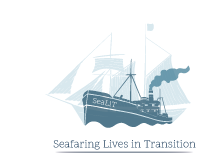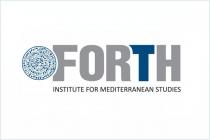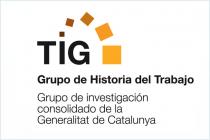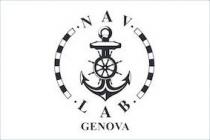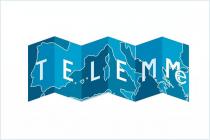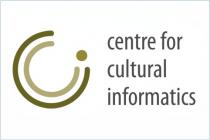

Research groups
The Institute for Mediterranean Studies (IMS) based in Rethymno, Crete, was founded in 1985 and belongs to the research units of the Foundation for Research and Technology, Hellas (FORTH).The IMS is the only FORTH centre which deals with the human and social sciences. The other Institutes based at Heraklion, Patras and Ioannina, cover the fields of computer science and the natural and biomedical sciences.The purpose of IMS is to support and invigorate research in the field of the human and social sciences, as well as to promote the application of advanced technologies in the field. The objective of the IMS's research programs is to study the geographical space, the history and culture of Greece and the other Mediterranean countries in various historical periods, from prehistory to modern times.
Labour, Institutions and Gender” (Trabajo, Instituciones y Género, TIG, www.ub.edu/tig) is a Research Group of Excellence (SGR2014-171) housed at the University of Barcelona. It is focused primarily on Labour History from the perspective of Gender. The group has promoted the creation of a network of university research groups that develop their research in this field: the Spanish Labour History Network (Red Española de Historia del Trabajo, REHT, www.um.es/reht). The members of this group are also members of the European Labour History Network (ELHN). The most relevant lines of research of “Work, Institutions and Gender” are: a) the formation of labour markets; b) the relationship between demographic changes and changes in labour markets; c) the relationship between family and work; d) the organization and segmentation of work; e) labour and social inequalities; f) the history of trades and professions; g) wages and working hours; and, h) consumption and welfare. Since 1996, the group has participated in different research projects funded by the European Union, the Ministry of Education of Spain, the Ministry of Economy and Competitiveness of Spain, the Generalitat of Catalunya, and the Barcelona City Council, among others. The group has conducted research on textile workers, metal workers, glass workers, rural workers, maritime workers (seafarers and dock workers) and domestic servants.
NavLab (Laboratorio di storia marittima e navale) is a specialized research centre of the Department of History, Philosophy and Antiquities (DAFIST) of the University of Genoa. Founded in 2012, NavLab relies on the valuable educational and scientific experience of its founder members, grew on the “Maritime and naval history” course offered within the Historical Sciences Master’s degree, on the doctoral school of History, on several publications and some international agreements. NavLab aims to promote, develop and coordinate research studies in the maritime and naval history field; it also aims stimulate multidisciplinary approaches and scientific collaborations with other research centres and universities. It is currently headed by Luca Lo Basso, professor of early modern history and maritime and naval history at the University of Genoa.
The UMR (Joint Research Unit) TELEMME (TIMES, SPACES, LANGUAGES, SOUTHERN EUROPE, MEDITERRANEA) is one of the largest research centers of the Mediterranean House of the Humanities (MMSH, located in Aix-en-Provence). The UMR 7303 TELEMME is a unit of the Aix-Marseilles University and of the CNRS's National Institute of Sciences and Humanities (INSHS). It is currently headed by Xavier Daumalin, professor of contemporary history at the Aix-Marseilles University, assisted by Laure Verdon, vice-director, professor of Middle Age history. TELEMME UMR is the only one in Humanities in France with guidelines relate specifically to Mediterranean Europe. Multidisciplinary, it's another to bring originality mainly geographers and historians, all specialists of the Mediterranean, the Iberian Peninsula to the Balkans through the Southern France and Italy. Its chronological range extends from medieval times to the more contemporary. It has today 75 members (lecturers, full professors and full researchers) and 85 doctoral students.
The Department of History of the University of Zadar is the only Croatian university department specialized in maritime history. Since it founded in 1956, paid special attention to the research of naval and maritime history. Today the courses in maritime and naval history are offered at BA and MA levels. Four members of the department are specialized in different aspects of maritime history. There is also a PhD program entitled "Adriatic – a link between continents" that offers the possibility to carry out doctoral research in maritime history. So far approximately twenty students who achieved such a degree are working either as researchers or in maritime museums. The Department also publishes the scientific journal Miscellanea Hadriatica et Mediterranea covering a variety of topics in maritime and naval history.
The Centre for Cultural Informatics (CCI), a specialized unit within the ISL, brings together skills in knowledge representation, ontology engineering, knowledge organization systems, database technology and web technology with expertise in archaeology, museum documentation and management, art conservation, archives and libraries, thesaurus and dictionary management and other disciplines such as physics, history, geography, biodiversity etc. Within the scope of its activities, the CCI has collaborations with museums of artifacts, natural history museums, libraries, archives, zoological and botanical gardens, and publishers at a national and international level. Among others, the Centre functions as competence center for the CIDOC-CRM (ISO 21127)- an ontology which provides a common and extensible semantic framework that any cultural heritage information can be mapped to, by building and exchanging application know-how, by providing consultancy to implementers and researchers, and by contributing to the dissemination, maintenance and evolution of the standard itself.
The Advisory Committee of the project has a consultative character and ensures a high-standard academic progress of the project. It is composed by three members, Professor Gelina Harlaftis (IMS/FORTH-Ionian University), expert on Greek Maritime History, Professor Gilbert Buti (Université Aix-Marseille/TELEMME), expert on French Maritime History, and Professor Gopalan Balachandran (Graduate Institute of International and Development Studies, Geneva) expert on History of Globalization.
